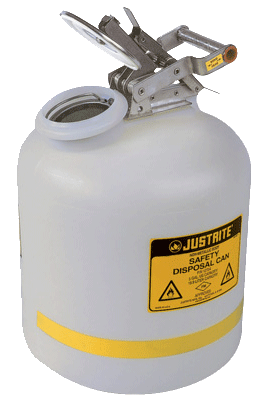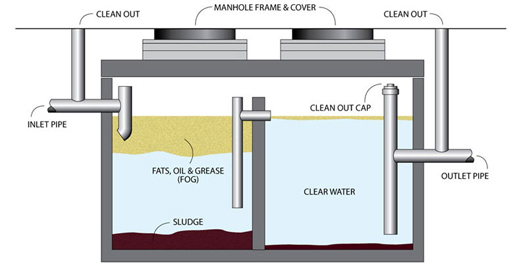Innovative Industrial Wastewater Treatment Solutions: Protecting the Setting
Innovative Industrial Wastewater Treatment Solutions: Protecting the Setting
Blog Article
Recognizing the Comprehensive Process of Fluid Waste Disposal: Finest Practices and Environmental Impact Considerations
The administration of liquid waste disposal is a diverse issue that needs a comprehensive understanding of numerous ideal practices and their linked environmental influences. From the types of fluid waste generated to the techniques utilized for collection, therapy, and final disposal, each step plays an important duty in safeguarding ecosystems and public health and wellness.
Kinds Of Fluid Waste
Recognizing the numerous kinds of fluid waste is important for reliable management and disposal methods. Fluid waste can be extensively classified right into a number of types, each needing one-of-a-kind handling and treatment approaches.
Industrial fluid waste commonly contains hazardous materials, including hefty metals, solvents, and chemicals, created throughout making procedures. These wastes demand stringent regulatory compliance to shield human health and the environment. Domestic fluid waste mainly refers to wastewater created from families, consisting of sewage and greywater, which, although less harmful, can still position significant dangers if improperly handled.
Agricultural liquid waste, consisting of runoff from farms, frequently consists of plant foods and pesticides that can lead to ecological degradation if not dealt with sufficiently. Medical liquid waste, created from health care centers, consists of contaminated liquids such as bodily fluids and chemicals, needing specialized disposal approaches to avoid infection and environmental contamination.
Last but not least, oil and oil waste, typically generated by restaurants and automobile sectors, can create serious clogs in drain systems if not managed effectively. Comprehending these groups helps with targeted techniques for treatment, conformity with laws, and effective disposal methods, eventually advertising ecological sustainability and public wellness safety and security.

Collection Techniques
Reliable collection methods are vital for the correct administration of fluid waste, making sure that it is gathered securely and successfully prior to treatment or disposal. Various strategies are employed relying on the kind of fluid waste generated, the quantity, and the specific characteristics of the waste.
One common approach is the use of devoted collection storage tanks or sumps, which are made to capture fluid waste at the source. These systems frequently incorporate pumps that facilitate the transfer of waste to bigger storage space containers or treatment centers. Additionally, mobile collection devices equipped with vacuum technology are used in scenarios where waste is produced intermittently or in hard-to-reach places.
For commercial settings, closed-loop systems can efficiently minimize spills and leaks, permitting the recuperation and reuse of liquid waste. It is also crucial to educate workers on proper collection protocols to alleviate dangers related to dangerous materials.
Furthermore, implementing routine upkeep schedules for collection devices makes certain ideal efficiency and safety. The assimilation of advanced monitoring systems can enhance collection efficiency by supplying real-time information on waste degrees and prospective hazards. On the whole, effective collection techniques are foundational to sustainable fluid waste monitoring methods.
Therapy Procedures
Treatment procedures play an important duty in the monitoring of fluid waste, changing possibly harmful materials into multiple-use resources or secure effluents - liquid waste disposal. These procedures can be generally classified into physical, chemical, and organic techniques, each tailored to resolve particular impurities present in the waste stream
Physical treatment techniques, such as sedimentation and purification, job by removing put on hold solids and particle matter. These methods are typically the initial step in the treatment chain, efficiently minimizing the tons on succeeding procedures. Chemical treatments entail using reagents to neutralize hazardous materials, speed up heavy steels, or oxidize natural toxins, therefore enhancing the security of the effluent.
Organic treatment processes, consisting of triggered sludge systems and anaerobic digestion, utilize on the all-natural capacities of microbes to deteriorate raw material. These techniques are specifically efficient for wastewater containing eco-friendly contaminants. Advanced therapy technologies, such as membrane purification and advanced oxidation procedures, are increasingly utilized to attain greater levels of filtration.
Incorporating a mix of these therapy methods not just guarantees conformity with governing standards however also advertises environmental sustainability by recouping useful sources from fluid waste.
Disposal Options
Just how can companies make certain the liable and secure disposal of fluid waste? Reliable disposal alternatives are important for securing public health and the atmosphere. The key methods consist of land disposal, therapy, and incineration complied with by discharge right into community wastewater systems.
Land disposal entails the mindful containment of liquid waste in marked landfills, ensuring that it does not leach into bordering dirt or water. Incineration, on the various other hand, subjects liquid waste to high temperature levels, transforming it see it here into ash and gases, which call for proper purification to minimize exhausts. This technique is suitable for hazardous wastes that can not be treated through standard ways.
In instances where liquid waste can be dealt with, companies may go with chemical or organic therapy processes to reduce the effects of damaging elements prior to discharging the dealt with effluent into community systems. This course usually lines up with governing demands, making sure that the effluent fulfills safety and security requirements.
Eventually, organizations need to perform complete analyses of each disposal choice to establish its practicality, considering variables such as waste make-up, regulatory conformity, and potential risks to health and the setting. By selecting ideal disposal approaches, companies can add to a responsible waste administration method.
Ecological Effect
The ecological impact of fluid waste disposal is a crucial factor to consider for organizations seeking to decrease their ecological impact. In addition, the discharge of without treatment or improperly treated waste right into surface area waters can result in eutrophication, leading to oxygen deficiency and the subsequent fatality of fish and various other organisms.

To reduce these impacts, companies should adopt best practices such as implementing extensive waste therapy procedures, advertising recycling and reuse, and adhering go to this website to regulatory requirements. By taking an aggressive technique to liquid waste monitoring, entities can considerably reduce their environmental impact while supporting sustainable development objectives. Eventually, an extensive understanding of the ecological impacts connected with liquid garbage disposal is important for informed decision-making and liable stewardship of natural deposits.
Final Thought
Effective management of fluid waste is critical for protecting environmental stability and public health and wellness. By adopting ideal methods in therapy, disposal, go to this web-site and collection, together with adherence to governing requirements, the possibility for damaging contamination of ecosystems can be significantly minimized. Continuous advancements in modern technology and procedures add to sustainable waste monitoring initiatives. Ultimately, a detailed understanding of liquid waste disposal not only mitigates ecological impacts yet also cultivates a dedication to responsible resource monitoring and ecological stewardship.
The monitoring of liquid waste disposal is a multifaceted issue that requires a detailed understanding of various ideal methods and their connected ecological impacts. From the kinds of fluid waste produced to the techniques used for collection, treatment, and last disposal, each step plays a crucial function in safeguarding ecosystems and public wellness.The environmental effect of fluid waste disposal is a vital factor to consider for organizations looking for to decrease their eco-friendly impact. Eventually, a detailed understanding of the ecological impacts connected with fluid waste disposal is crucial for notified decision-making and accountable stewardship of all-natural sources.
Eventually, a detailed understanding of fluid waste disposal not just alleviates ecological effects but also fosters a dedication to accountable resource administration and ecological stewardship.
Report this page